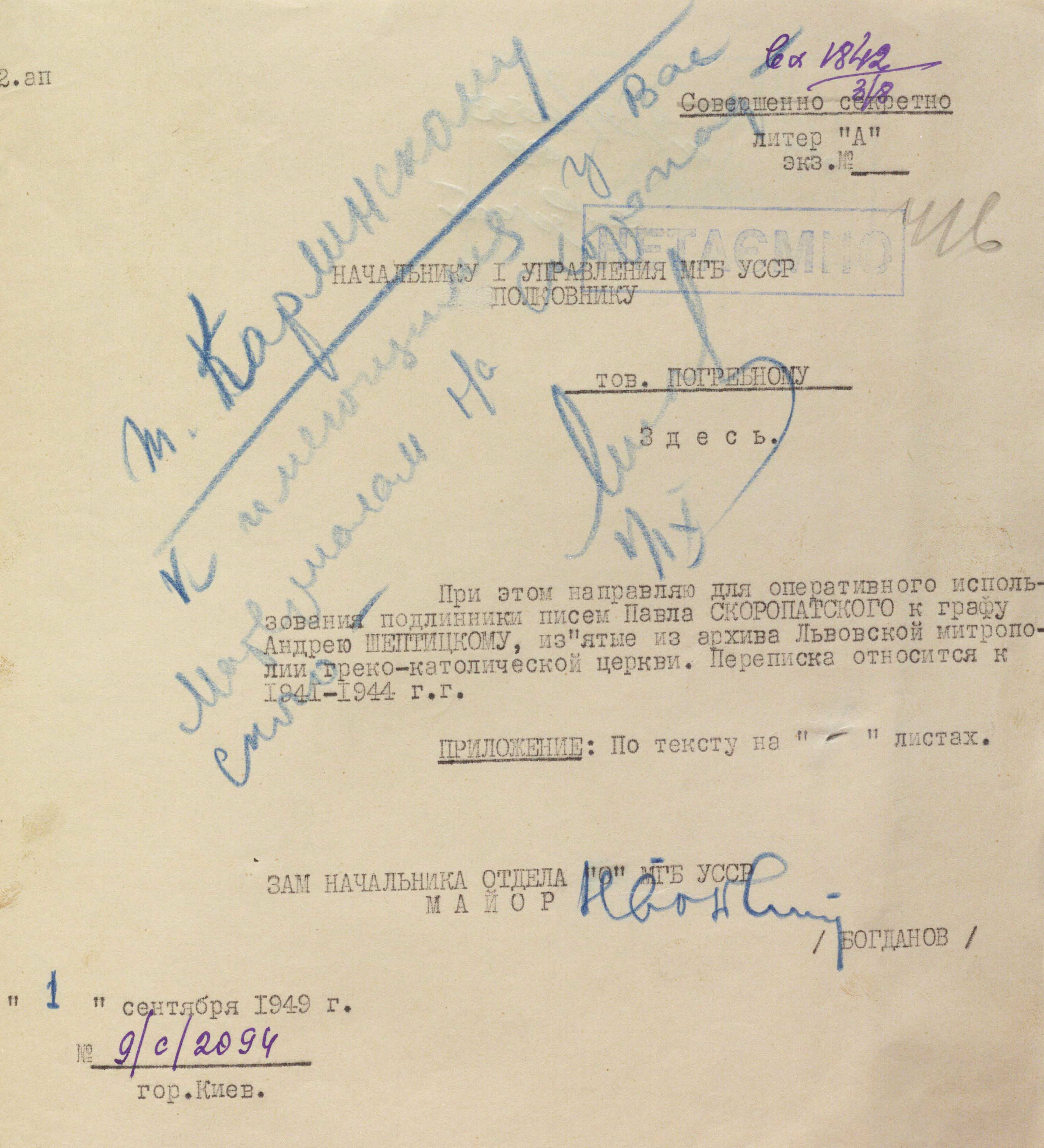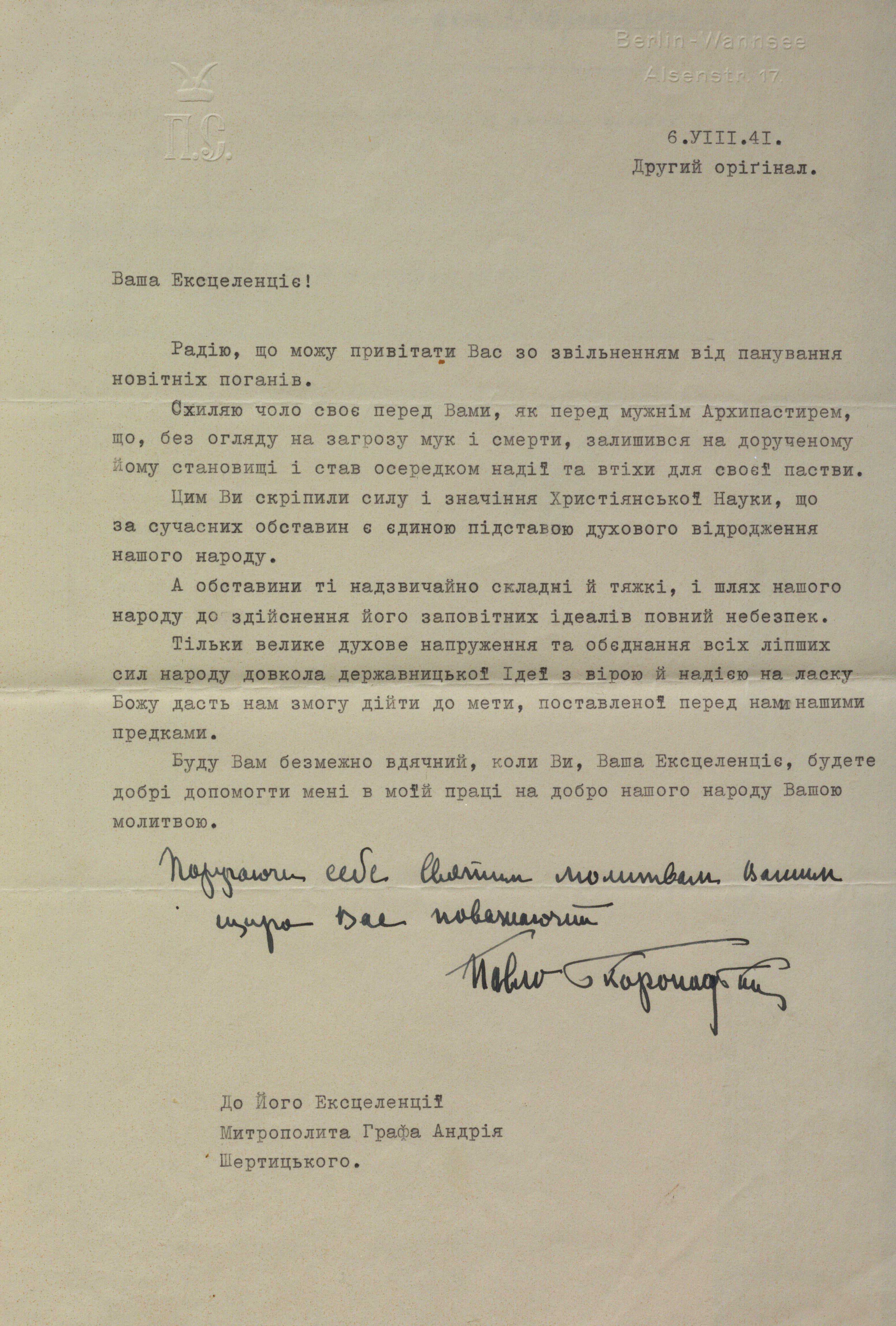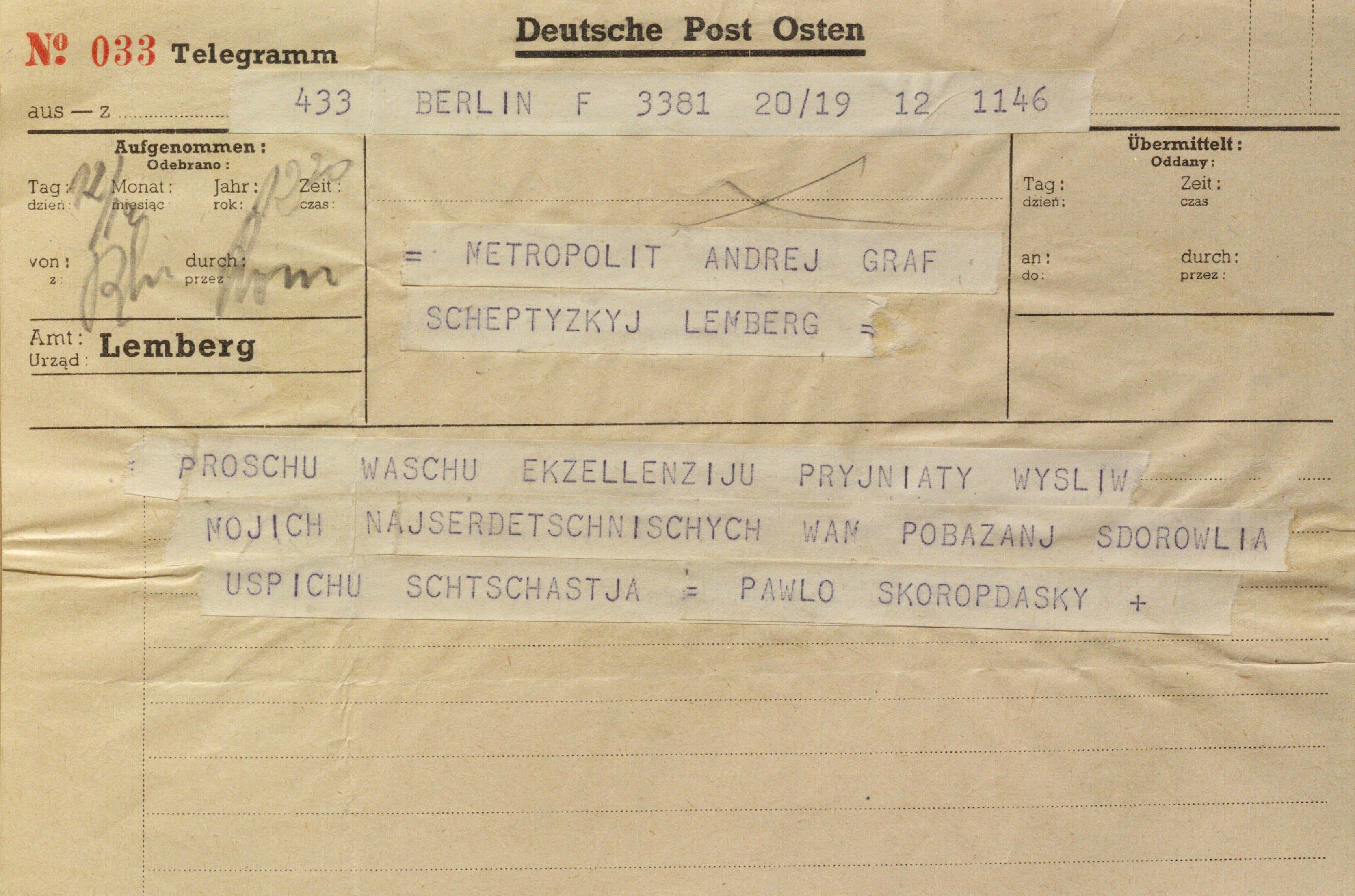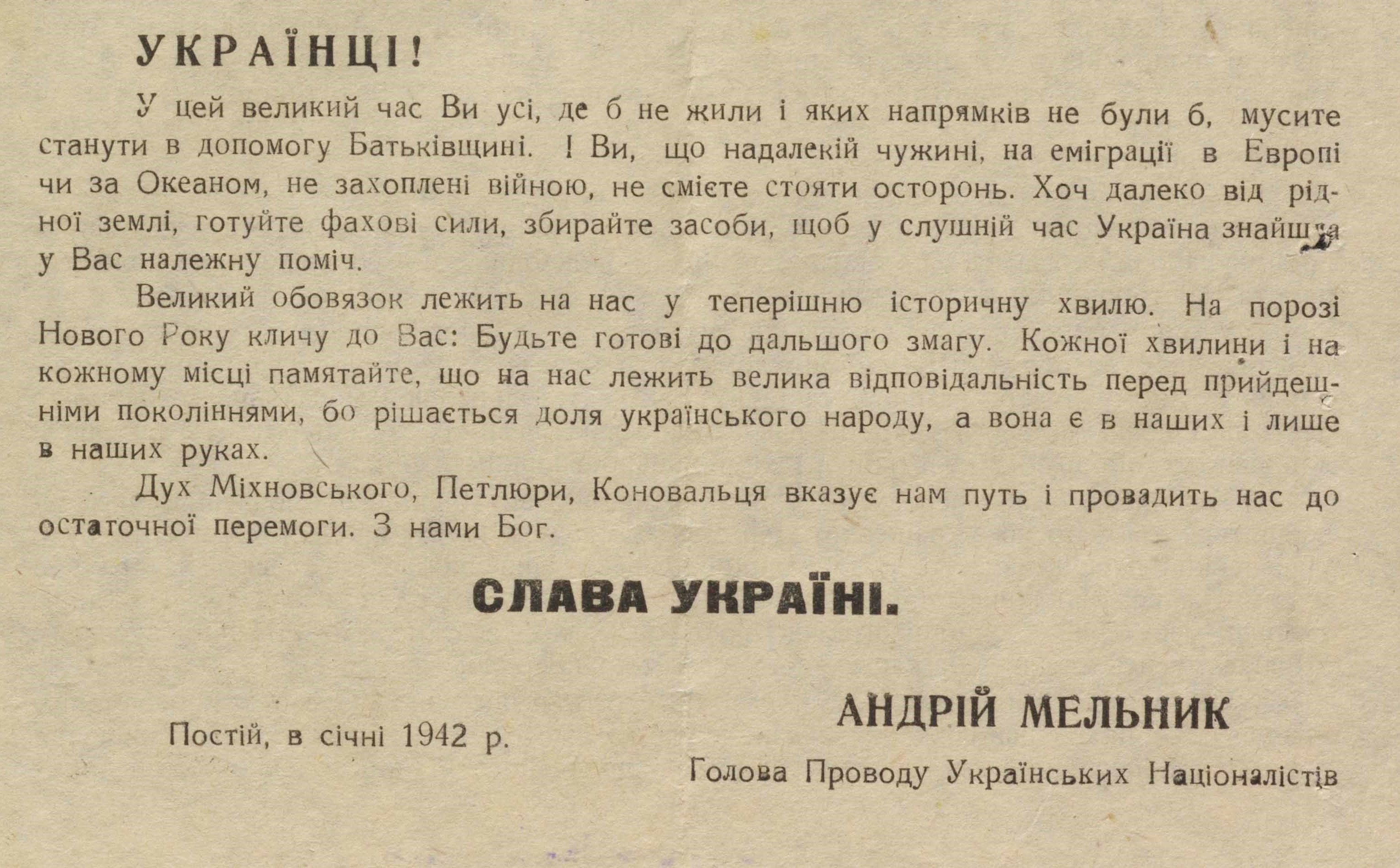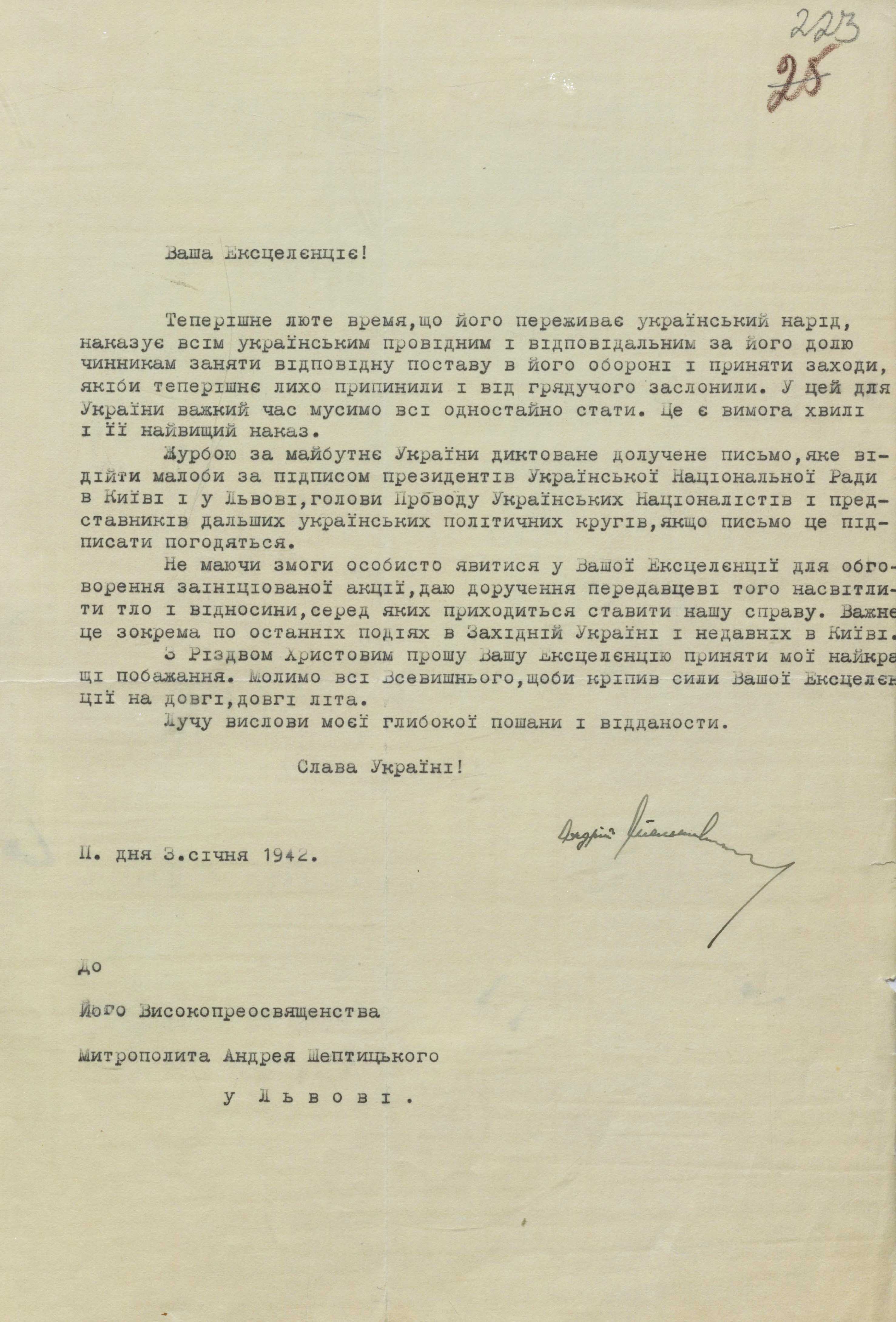“Happy Christmas, Your Excellency!”
12/24/2024
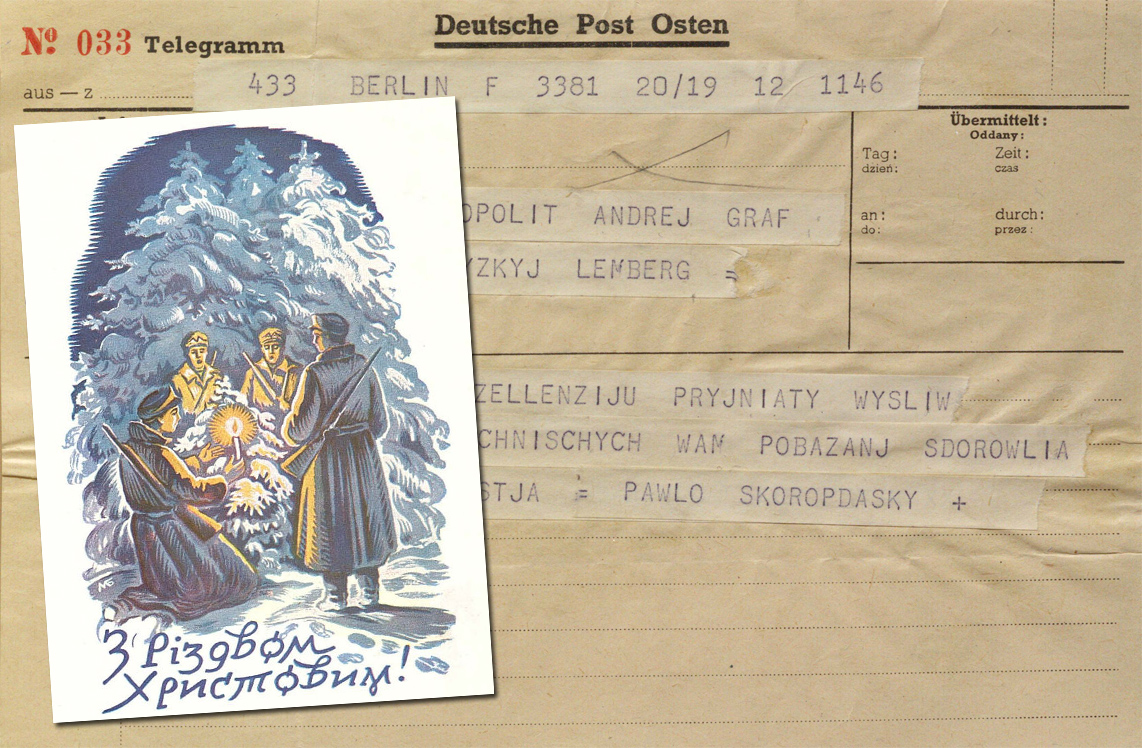
In the archival files of the Foreign Intelligence Service of Ukraine, along with agent reports, certificates, plans and instructions, there are ordinary everyday letters from the objects of operational cultivation, photographs, and postcards. In particular, there are many greetings on birthdays, national and religious holidays, such as Christmas. Reading these materials allows us to fill in the gaps in the biographies of figures of the Ukrainian liberation movement, to understand the motives of their actions, relationships with partners in the struggle and opponents, family and friends, and ultimately to see what they wished each other during periods of hardship, war, discouragement and despair.
Among the materials on Pavlo Skoropadskyi, there is a great amount of correspondence with his son Danylo, leaders of the Hetmanate movement, and other representatives of the Ukrainian emigration. The Hetman sincerely greeted his family and friends on holidays and memorable dates, finding warm words and wishes for them, and trying to support them in hard times. For example, in the summer of 1941, shortly after the outbreak of the German-soviet war, he wrote the following in a letter to Metropolitan Andrei Sheptytskyi:
“...I bow my head to you as a courageous Archpastor who, despite the threat of torment and death, remained in the position entrusted to him and became a center of hope and comfort for his flock.
By doing so, you have cemented the power and importance of Christian Science, which under the current circumstances is the only basis for the spiritual revival of our people.
These circumstances are extremely complicated and difficult, and our people’s path to its cherished ideals coming true is full of dangers.
Only a great spiritual effort and unification of all the best forces of the people around statehood ideas with faith and hope in the grace of God will allow us to reach the goal set before us by our ancestors...”
(BSA of FISU. - F. 1. - Case No. 7242. - Vol. 21. - P. 417).
It is likely that at the beginning of the next year P. Skoropadskyi greeted A. Sheptytskyi on Christmas by telegram from Berlin to Lviv. It read: “I ask your Excellency to accept the expression of my most sincere wishes of good health, success, and happiness. Pavlo Skoropadskyi” (BSA of FISU. - F. 1. - Case No. 7242. - Vol. 21. - P. 417).
The archival funds of the Foreign Intelligence Service of Ukraine contain a letter of congratulations to Metropolitan Sheptytskyi from Andriy Melnyk, head of the Provid of Ukrainian Nationalists, dated January 3, 1942. It reads as follows:
“Your Excellency!
The current fierce time that the Ukrainian people are experiencing, orders all Ukrainian leaders and factors responsible for their (Ukrainian people’s-Transl.) fate to take an appropriate stance in defending them and take measures that would stop the current disaster and not let it happen again. In this hard time for Ukraine, we must all stand united. This is the moment's demand and its highest order.
The attached letter is dictated by concern about the future of Ukraine...
On Christmas, I ask your Excellency to accept my best wishes. We all pray to the Almighty to strengthen the strength of your Excellency for many, many years to come.
I am sending you my deepest respect and devotion.
Glory to Ukraine!”
(BSA of FISU. - F. 1. - Case No. 11332. - Vol. 3. - P. 223).
It was then that the German occupying authorities gave Sheptytskyi permission to address Ukrainians on the radio on the occasion of Christmas. This is mentioned in open sources. In that address, the Metropolitan said: “May [God] protect our people from all discord and partisanship. May He grant them such important and ultimate unity, which is nothing but brotherly love, love [for] the Motherland, and sacrifice of one's prejudice for the common good... May He grant social and state institutions based on wise and just laws... May He grant our people the freedom without which the labor of life does not bring lasting fruit, but also the wisdom without which freedom so easily degenerates into arbitrariness”.
Andriy Melnyk's address to Ukrainians at the time, found in the archives of the Foreign Intelligence Service, is also imbued with concern about the fate of the Ukrainian people. It is entitled “The Word of Andriy Melnyk, Leader of the Ukrainian Nationalists, on the Occasion of the New Year” and is dated January 1942. The address reads:
“Ukrainians!
Another year of our struggle and work is running to its end. The coming year will be a turning point in the fate of our Motherland. We are about to take the exam for which we have been preparing for years amidst labor and sacrifice.
The greatness of the Ukrainian cause and the importance of the tasks of the Ukrainian nation take longer to be accomplished. The horizons of Ukraine's future are just beginning to emerge in the glow of great events. Our strength is being hardened in the stubborn struggle against our centuries-old enemy, moscow...
In this great time, all of you, regardless of where you live and what your ideas are, must help the Motherland. And you, who are in a distant foreign land, in exile in Europe or overseas, who are not caught up in the war, should not stand aside. Even though you are far from your native land, prepare professional forces, raise funds so that Ukraine can find proper assistance from you at the right time.
We have a great responsibility in this historic moment. On the threshold of the New Year, I appeal to you: be ready for further struggle. Every minute and in every place, remember that we have a great responsibility to future generations, because the fate of the Ukrainian people is being decided, and it is in our hands and in our hands alone...”
(BSA of FISU - F. 1. - Case No. 11332. - Vol. 1. - P. 69).
Given that the Christmas and New Year's addresses spoke of faith, hope, unity, and readiness for further struggle to win freedom for the Ukrainian people, the nkvd interpreted such cards and appeals as anti-soviet and subversive. Hence, its task was to debunk Ukrainian figures as bitter enemies of the soviet regime and, at the same time, distribute and promote other appeals among the population, such as those of communist party leaders, who also called for unity, but around the ideas of lenin and stalin, spoke of love for the party, faith in the victory of communism, and harmfulness of church canons.
